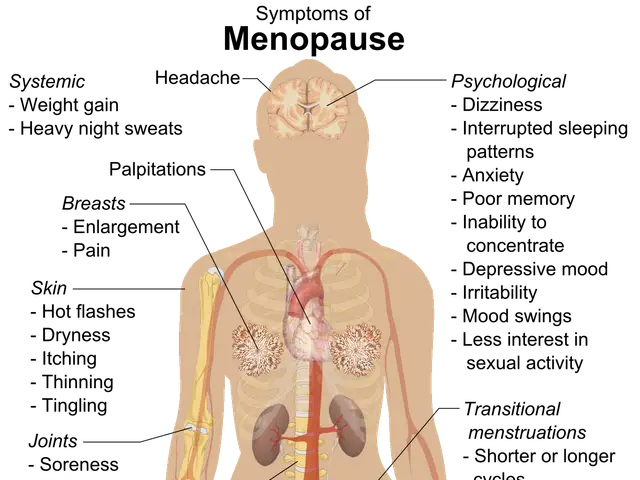Personalized Vitamin Selection: A Matter of Personal Preference
In today's fast-paced world, maintaining a balanced diet can sometimes be challenging. Adequate intake of essential vitamins and minerals is crucial for overall health, and while a balanced diet should be the primary source, supplements can provide a boost when needed.
Iron, for instance, is vital for higher energy levels and improved brain function. It's particularly important for women of reproductive age, pregnant women, and vegetarians/vegans, as iron from plant-based foods is less readily absorbed. The recommended daily allowance (RDA) is 8 mg/day for men and 18 mg/day for women.
Zinc, on the other hand, plays a significant role in boosting your immune system and possibly preventing infections like pneumonia. It also helps with rapid wound healing and reducing the symptoms of the common cold. A serving of zinc-fortified breakfast cereal provides 2.8 mg, while cooked Pacific oysters are high in zinc, with 28.2 mg per 3 ounces.
Vitamin D is another essential nutrient, supporting bone, muscle, and immune health. Sunlight exposure helps your body produce vitamin D, but if you have limited sun exposure or dietary intake, supplementation is often advised. The RDA for adults up to age 70 is 600 IU and 800 IU after 70.
Multivitamins that provide 100% of the daily value for essential vitamins and minerals can help cover gaps in your diet. Choosing one that matches your age, gender, and dietary patterns for better effectiveness is advisable.
Calcium is crucial for maintaining strong bones and teeth. The RDA is 1,000 mg/day for adults under 50 and 1,200 mg/day for those older. If your dietary intake is low, supplementation may be necessary.
Magnesium supports muscle and nerve function and is involved in many enzymatic reactions. The RDA varies by sex, with men requiring 400-420 mg and women 310-320 mg. Supplement form should be chosen based on your specific needs.
Vitamin B12 and Zinc are particularly important for vegetarians and vegans as these are less abundant in plant foods.
While it's best to get vitamins and minerals from a healthy diet, supplements can give your body a boost if needed. A tailored approach, based on your health profile and diet, is the best way to ensure you're meeting your nutrient needs. Getting blood tests to identify any deficiencies and consulting a healthcare provider or nutritionist can help tailor recommendations to your needs.
News articles on health-and-wellness frequently discuss the importance of essential nutrients, such as iron, zinc, vitamin D, calcium, and magnesium. For instance, iron is vital for higher energy levels and improved brain function, particularly for women of reproductive age, pregnant women, and vegetarians/vegans. Multivitamins that provide 100% of the daily value for essential vitamins and minerals can help cover gaps in your diet, but it's advisable to choose one that matches your age, gender, and dietary patterns for better effectiveness. Nutrition experts often recommend supplementing dietary intake with certain nutrients like vitamin B12 and zinc, especially for vegetarians and vegans, as these are less abundant in plant foods. However, getting blood tests to identify any deficiencies and consulting a healthcare provider or nutritionist can help tailor recommendations to your needs, ensuring a balanced diet that promotes overall health.






